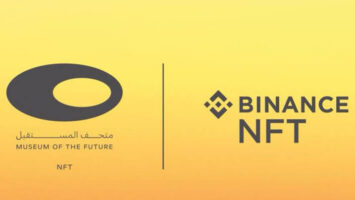SNEAK PEEK
- OpenSea will incorporate the BNB Chain into the Seaport Protocol.
- The action will support BNB Chain creators with solutions like collection management and creator payouts.
- The move will be executed by the end of this year.
OpenSea has announced its plans to incorporate BNB Chain on its marketplace by the end of this year. Owing to the incorporation, users can purchase, list as well as trade BNB Chain non-fungible tokens on the marketplace.
We’re excited to share that @BNBCHAIN🔶 is officially live on OpenSea! pic.twitter.com/U4kXFJKEXs
— OpenSea (@opensea) November 29, 2022
BNB Chain was built by Binance to operate as a Web3-focused blockchain network powered by the exchange’s in-house token, BNB. The aim behind the integration is to offer multiple creator payouts, collection management and real-time payouts, etc. to BNB Chain creators.
Investment director at BNB Chain, Gwendolyn Regina, said that providing improved experiences to NFT users and creators is the goal.
She added:
The integration will bring a large number of creators into the wider system, as well as empower the creators and NFT initiatives inside the BNB Chain ecosystem.
Gas fees will be lowered to remove setup fees and offer simpler signature confirmation actions. OpenSea’s other plan includes leveraging Seaport throughout several blockchains to connect with more users.
Recently, OpenSea shared plans for creator NFT royalties but creators were unconvinced. As a result, the marketplace announced imposing royalties throughout all collections upon facing severe backlash from the public.
Devin Finzer, OpenSea CEO, defined the on-chain tool, as a “simple code snippet,” that intends to control the current system of voluntary creator fee payment. NFT sales will also be limited by the code exclusively to marketplaces that apply creator fees criteria.
In January this year, OpenSea reversed its effort to apply restrictions on NFT mints, thanks to a community howl. Creators were limited to creating only five NFT collections with 50 items each as the maximum.
We know this change may impact our community so please don’t hesitate to share how this affects your creative flow.
— OpenSea Support (@opensea_support) January 27, 2022
At the time, OpenSea claimed that not only smart contracts were being exploited but 80% of the created items using the tools were spam, plagiarized works and counterfeit collections.









